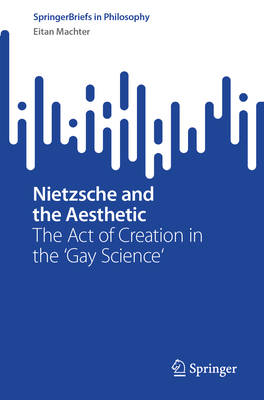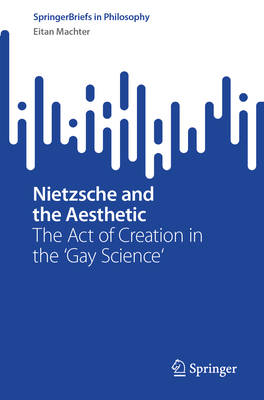
Bedankt voor het vertrouwen het afgelopen jaar! Om jou te bedanken bieden we GRATIS verzending (in België) aan op alles gedurende de hele maand januari.
- Afhalen na 1 uur in een winkel met voorraad
- In januari gratis thuislevering in België
- Ruim aanbod met 7 miljoen producten
Bedankt voor het vertrouwen het afgelopen jaar! Om jou te bedanken bieden we GRATIS verzending (in België) aan op alles gedurende de hele maand januari.
- Afhalen na 1 uur in een winkel met voorraad
- In januari gratis thuislevering in België
- Ruim aanbod met 7 miljoen producten
Zoeken
€ 83,95
+ 167 punten
Omschrijving
This Brief focuses on Nietzsche's aesthetics not merely as an artistic field but as a way of understanding life itself. Unlike his predecessors, Nietzsche rather saw aesthetics as a fundamental principle aim of human existence. This volume demonstrates how Nietzsche's aesthetic thinking is not simply an analysis of art but rather a comprehensive worldview shaping his approach to morality, truth, and the meaning of life. It traces the development of aesthetics beginning with Nietzsche's first major work, The Birth of Tragedy. Machter appeals to the "death of God," one of Nietzsche's central claims, as not just a theological statement but a cultural-aesthetic one; and also reflects on the Overman as a response to nihilism. This volume appeals to students and researchers and presents Nietzsche's aesthetics as not an escape into the world of art but rather a call for individuals toward a meaningful life.
Specificaties
Betrokkenen
- Auteur(s):
- Uitgeverij:
Inhoud
- Aantal bladzijden:
- 133
- Taal:
- Engels
- Reeks:
Eigenschappen
- Productcode (EAN):
- 9783032034717
- Verschijningsdatum:
- 29/08/2025
- Uitvoering:
- Paperback
- Formaat:
- Trade paperback (VS)
- Afmetingen:
- 156 mm x 234 mm
- Gewicht:
- 222 g

Alleen bij Standaard Boekhandel
+ 167 punten op je klantenkaart van Standaard Boekhandel
Beoordelingen
We publiceren alleen reviews die voldoen aan de voorwaarden voor reviews. Bekijk onze voorwaarden voor reviews.









